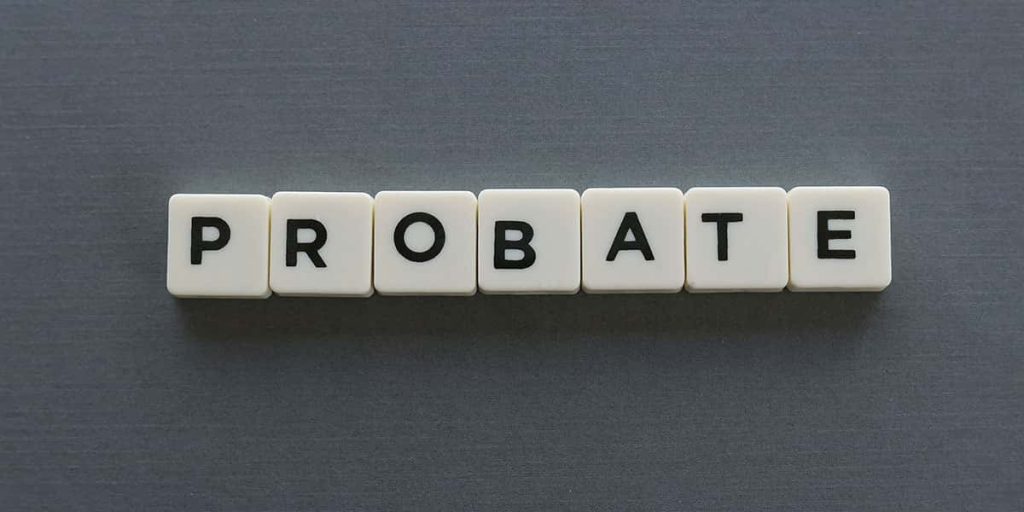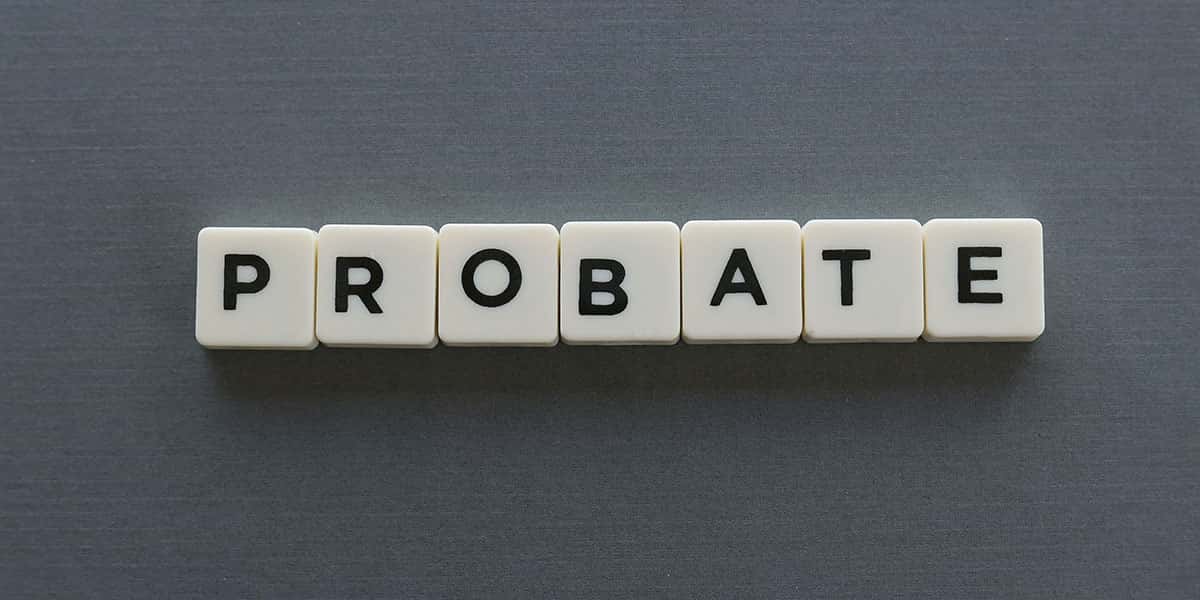
Assets solely owned by the deceased:
When an individual holds assets solely in their name, such as real estate, bank accounts, or vehicles, the process of probate is often necessary to transfer these assets to the beneficiaries specified in the will or, in the absence of a will, in accordance with intestacy laws.
Absence of designated beneficiaries or joint ownership:
Probate becomes essential when assets lack designated beneficiaries or are not jointly owned. Assets with designated beneficiaries, like life insurance policies or retirement accounts, typically avoid probate and directly pass to the named beneficiaries.
Controversies or disputes regarding the will:
In cases where there are disputes or challenges concerning the validity of the will, probate serves as a legal avenue to address these issues. The court will carefully review the evidence presented and make a determination regarding the will’s validity.
Complex or sizable estates:
For estates that are large or intricate, involving significant assets, multiple creditors, or complex distribution arrangements, probate may be required. The oversight provided by the court ensures the orderly administration and equitable distribution of the estate.
Settlement of creditor claims and debts:
Probate facilitates the identification and resolution of the deceased individual’s outstanding debts and obligations. Creditors have the opportunity to make claims against the estate, and the executor utilizes estate assets to settle valid debts.
It is crucial to recognize that probate laws can vary depending on the jurisdiction, and the specific probate requirements may differ. Seeking guidance from an attorney specializing in estate planning and probate can offer clarity on the necessary steps and procedures in your specific area.
Understanding the Necessity of Probate in New York
Probate is typically required in New York under the following circumstances:
Presence of a valid will:
If the deceased individual left behind a valid will, probate is generally necessary to authenticate the will and ensure its proper execution. The Surrogate’s Court in the county of the deceased person’s residence at the time of death oversees the probate process.
Assets exclusively owned by the deceased:
In situations where the deceased individual possessed assets solely in their name, such as real estate, bank accounts, or vehicles, probate is essential to transfer these assets to the beneficiaries designated in the will or as per intestacy laws.
Lack of designated beneficiaries or joint ownership:
Probate is mandated for assets that do not have designated beneficiaries or are not jointly owned. Assets with designated beneficiaries, such as life insurance policies or retirement accounts, typically bypass probate and directly transfer to the named beneficiaries.
Disputes or challenges to the will:
In instances where there are disagreements or challenges regarding the validity of the will, probate offers a legal mechanism to address these concerns. The Surrogate’s Court will assess the evidence presented and make a determination regarding the will’s validity.
Management of large or complex estates:
For estates that are extensive or intricate, involving substantial assets, numerous creditors, or complex distribution arrangements, probate is often a necessary step. The oversight provided by the court ensures the proper administration and equitable distribution of the estate.
Consulting with a New York attorney specializing in probate and estate administration is crucial to understanding the specific requirements and procedures relevant to your situation. The attorney can assist you through the probate process and ensure compliance with New York state laws.
Key Steps in the Probate Process
The probate process typically involves several key steps. While the exact procedures may vary based on the jurisdiction and complexity of the estate, here are the general steps involved in probate:
Initiating the petition:
The probate process commences with filing a petition with the appropriate court, usually the Surrogate’s or Probate Courts. The petition requests the court to commence probate and appoint an executor or personal representative.
Notification of interested parties:
The executor is required to notify all interested parties, including beneficiaries named in the will, heirs-at-law (in the absence of a will), and potential creditors. This notification informs them of the probate proceedings and their ability to participate or make claims against the estate.
Validation of the will:
If a will exists, the court validates its authenticity and determines its validity. This process may involve examining witnesses, reviewing signatures, and ensuring compliance with legal requirements. If the will is deemed valid, it is admitted to probate.
Appointment of the executor:
The court appoints the executor named in the will or an administrator if there is no designated executor or the named executor is unable or unwilling to serve. The executor or administrator oversees the estate throughout the probate process.
Inventory and assessment of assets:
The executor compiles a detailed inventory of the deceased individual’s assets, including property, investments, bank accounts, personal belongings, and other pertinent assets. These assets are then appraised or valued to determine their fair market value at the time of death.
Settlement of debts and taxes:
The executor identifies and notifies creditors, allowing them to make claims against the estate. The executor is responsible for resolving valid debts and obligations using the available estate assets. Additionally, any applicable estate taxes, income taxes, or inheritance taxes must be paid from the estate.
Distribution of assets:
Once debts, taxes, and expenses are settled, the remaining assets are distributed to the beneficiaries as outlined in the will or in accordance with intestacy laws if there is no will. The executor seeks court approval for the final distribution and ensures the proper transfer of ownership to the beneficiaries.
Closing of the estate:
Upon completion of all tasks, the executor submits a final accounting to the court, providing a comprehensive report of all financial transactions and distributions. The court reviews the accounting, approves it, and issues an order to close the estate.
<h2 class
When is Probate Necessary?
Understanding Probate
Probate is a legal process that takes place after someone passes away. It involves validating the deceased individual’s will, identifying and appraising their assets, paying off debts and taxes, and distributing the remaining assets to the rightful beneficiaries. Probate ensures that the deceased’s final wishes are carried out and that all financial matters are settled properly.
When is Probate Necessary?
Probate may be necessary in the following situations:
– If the deceased individual owned assets solely in their name: Assets held solely in the deceased individual’s name typically require probate to transfer ownership to the beneficiaries.
– If the deceased individual had significant debts: Probate may be necessary to ensure that creditors are paid off from the deceased individual’s estate before the remaining assets are distributed to beneficiaries.
– If there is no designated beneficiary: Assets without a designated beneficiary or joint owner may require probate to determine how they should be distributed.
– If there is a dispute over the validity of the will: If there are concerns or disputes over the validity of the deceased individual’s will, probate may be necessary to resolve these issues through the court.
Benefits of Probate
While probate can sometimes be a lengthy and complex process, it offers several benefits, including:
– Legal protection: Probate provides legal protection to the estate, ensuring that the deceased individual’s assets are distributed according to their wishes or state laws.
– Creditor notification: Probate provides a formal process for notifying creditors of the deceased individual’s passing and settling any outstanding debts.
– Dispute resolution: Probate can help resolve any disputes or challenges regarding the deceased individual’s will or estate.
Practical Tips for Probate
If you are faced with the probate process, here are some practical tips to help you navigate it smoothly:
1. Consult with an experienced probate attorney: A probate attorney can guide you through the process, ensure that all legal requirements are met, and help resolve any issues that may arise.
2. Gather all relevant documents: Make sure to gather all the necessary documents, such as the deceased individual’s will, financial records, and asset information, to facilitate the probate process.
3. Communicate with beneficiaries: Keep beneficiaries informed about the probate process and provide updates on the status of the estate to avoid any misunderstandings or disputes.
4. Stay organized: Keep detailed records of all probate-related transactions, communications, and decisions to ensure transparency and accountability throughout the process.
Case Study: John’s Probate Experience
John recently lost his father, who had significant assets and debts. John was unsure whether probate was necessary in his father’s case, so he consulted with a probate attorney. The attorney helped John determine that probate was indeed necessary to settle his father’s estate properly. With the attorney’s guidance, John was able to navigate the probate process successfully and ensure that his father’s final wishes were carried out.
Conclusion
Probate is a crucial legal process that ensures the orderly distribution of assets and settlement of debts after someone passes away. While probate can be complex and time-consuming, it provides legal protection, creditor notification, and dispute resolution benefits. By understanding when probate is necessary, seeking professional guidance, and following practical tips, you can navigate the probate process smoothly and ensure that the deceased individual’s final wishes are honored.


